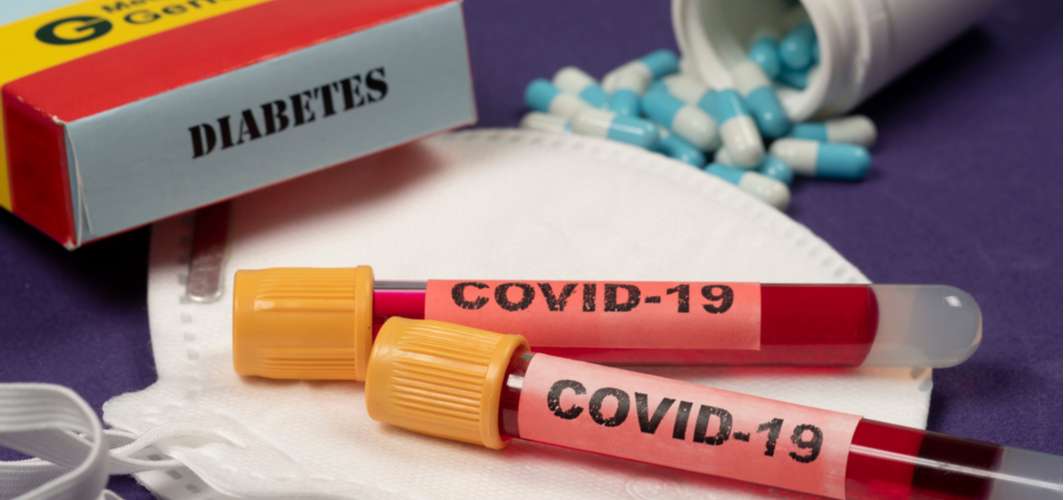Diabetes Management
Can Diabetes Cause Mood Swings?
3 min read
By Apollo 24|7, Published on - 25 September 2023, Updated on - 28 September 2023
Share this article
0
0 like

Diabetes is a complex condition that affects various aspects of a person's health, including metabolism, and overall well-being. While its physical effects are well-documented, its impact on mental and emotional health, including mood swings, is often overlooked. In this blog, we will explore the connection between diabetes and mood swings, shedding light on how this chronic condition can influence your emotional state.
What Happens In Diabetes?
Diabetes is characterised by high levels of glucose (sugar) in the blood. This happens when the body either doesn't produce enough insulin (Type 1 diabetes) or doesn't use insulin effectively (Type 2 diabetes). Since insulin is crucial for regulating blood sugar levels, an imbalance can lead to a range of physical and emotional symptoms.
How Does Blood Sugar Level Affect Mood?
Fluctuating blood sugars is one of the primary reasons for mood swings in individuals with Diabetes. When blood sugar levels are too high (hyperglycemia) or too low (hypoglycemia), it can have a direct impact on your emotions and mental well-being.
|
Condition |
Symptoms |
|
Hyperglycemia |
Irritability, anxiety, and extreme tiredness |
|
Hypoglycemia |
Irritability, anger, confusion |
What are Some Coping Strategies that you can Adopt?
Managing both the physical and emotional aspects of diabetes is crucial for overall well-being. Here are some strategies to help mitigate mood swings:
- Blood Sugar Control: Consistently monitor and maintain your blood sugar values within recommended levels. This includes taking prescribed medications and insulin as directed.
- Healthy Lifestyle: Adopt a balanced diet and engage in regular physical activity. These habits can help stabilise blood sugar levels and improve your overall mood.
- Stress Management: Incorporate stress-reduction techniques into your daily routine, such as mindfulness, meditation, yoga, or deep breathing exercises.
- Professional Support: Don't hesitate to seek support from a mental health professional or counselor if you're struggling with emotional challenges related to diabetes.
What is the Hormonal Impact of Diabetes?
Diabetes can also influence hormone levels, which can indirectly affect mood. For example, uncontrolled diabetes can lead to hormonal imbalances that contribute to mood disturbances. Additionally, the stress hormone cortisol may be elevated in people with diabetes, further contributing to mood swings.
Conclusion
While diabetes primarily affects the body's physical health, it can indeed cause mood swings and emotional fluctuations. The interplay between blood sugar levels, stress, hormones, and the demands of diabetes management can all contribute to changes in mood. By prioritising blood sugar control, adopting a healthy lifestyle, managing stress, and seeking professional guidance when needed, individuals with diabetes can effectively manage both the physical and emotional aspects of their condition, ultimately leading to improved overall well-being.
Diabetes Management
Consult Top Diabetologists
View AllLeave Comment
Recommended for you

Diabetes Management
Why is Controlling Diabetes Even More Important During the COVID-19 Pandemic?
The Coronavirus can infect anybody in the community, but the elderly and people with underlying conditions such as diabetes, heart conditions, lung disease, etc. are likely to be most severely ill if they contract the virus.

Diabetes Management
Why Should Diabetics Regularly Monitor Their Blood Glucose?
If you have diabetes, keeping an eye on your blood sugar levels is vital. Figuring out what makes your glucose levels rise and drop can prove to be extremely helpful in managing your condition. It can also help your doctor create a suitable treatment plan for you. Read on to learn about the benefits of blood sugar monitoring for diabetics.

Diabetes Management
Eggplants and Diabetes: A Healthy Addition to Your Diet
Eggplants can be a healthy addition to the diet of individuals with diabetes. Low in calories and carbohydrates, they offer various benefits, including blood sugar regulation due to their fiber content and antioxidant properties. Eggplants also support heart health and weight management. To incorporate them into your diabetes-friendly diet, try grilled or roasted eggplant in salads, hearty stews, or stuffed eggplant dishes. However, it's essential to practice portion control and consult with a healthcare provider or dietitian to personalize your dietary plan.
Subscribe
Sign up for our free Health Library Daily Newsletter
Get doctor-approved health tips, news, and more.
Visual Stories

8 Fruits That are Incredibly Healthy for Diabetes
Tap to continue exploring
Recommended for you

Diabetes Management
Why is Controlling Diabetes Even More Important During the COVID-19 Pandemic?
The Coronavirus can infect anybody in the community, but the elderly and people with underlying conditions such as diabetes, heart conditions, lung disease, etc. are likely to be most severely ill if they contract the virus.

Diabetes Management
Why Should Diabetics Regularly Monitor Their Blood Glucose?
If you have diabetes, keeping an eye on your blood sugar levels is vital. Figuring out what makes your glucose levels rise and drop can prove to be extremely helpful in managing your condition. It can also help your doctor create a suitable treatment plan for you. Read on to learn about the benefits of blood sugar monitoring for diabetics.

Diabetes Management
Eggplants and Diabetes: A Healthy Addition to Your Diet
Eggplants can be a healthy addition to the diet of individuals with diabetes. Low in calories and carbohydrates, they offer various benefits, including blood sugar regulation due to their fiber content and antioxidant properties. Eggplants also support heart health and weight management. To incorporate them into your diabetes-friendly diet, try grilled or roasted eggplant in salads, hearty stews, or stuffed eggplant dishes. However, it's essential to practice portion control and consult with a healthcare provider or dietitian to personalize your dietary plan.